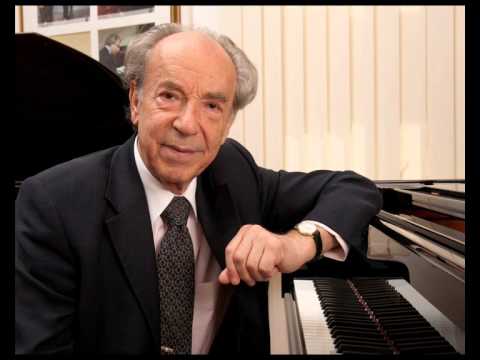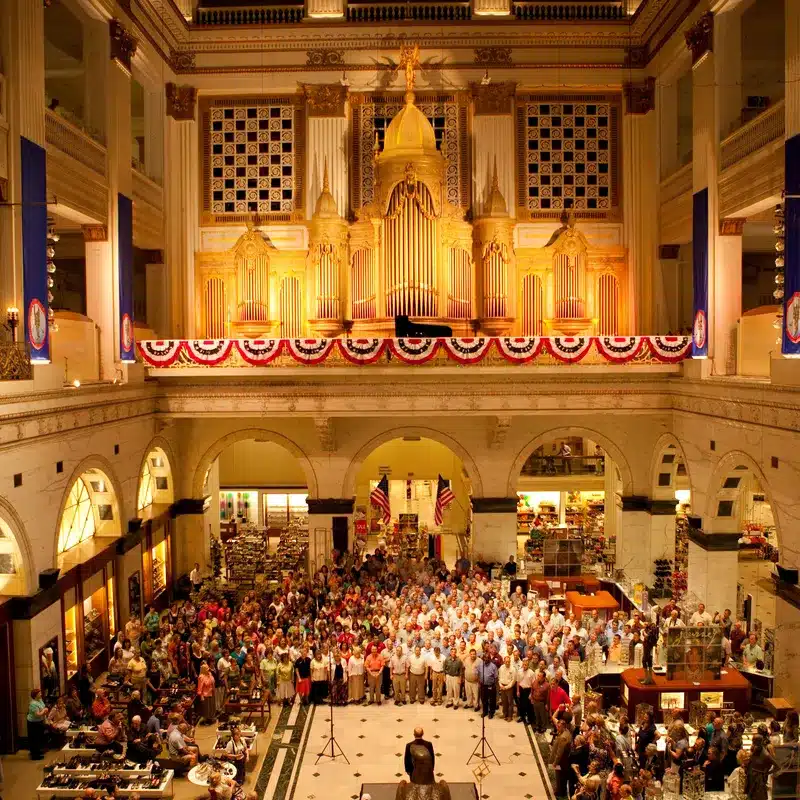If Badura-Skoda’s Haydn was a fake, what price the new Chopin?
NewsFrom a Guardian article, based on a BBC Radio 3 essay:
In 1993, completely out of the blue, the Austrian pianist Paul Badura-Skoda (pic) was sent a photocopy of a manuscript purporting to be six lost Haydn keyboard sonatas. It came with a letter from a little-known flautist from Münster, Germany called Winfried Michel, who told Badura-Skoda that he’d been given it by an elderly lady whose identity he could not reveal.
Badura-Skoda was suspicious, but once he played the music, he became sure that the works were real. He asked his wife Eva, a musicologist, to examine the manuscript. Although the music wasn’t in Haydn’s hand, she believed it to be an authentic copyist’s score dating from around 1805 and originating in Italy. They checked with the Haydn scholar, HC Robbins Landon, and he too was convinced. He penned an article for BBC Music Magazine, headlined Haydn Scoop of the Century, tipped off the Times, and called a press conference for 14 December 1993.
Within hours, the Joseph Haydn Institute in Cologne declared the manuscript to be a fake….
Read on here.






Perhaps there should be a new genre of retro music, where composers seek nothing more than to imitate ancient styles without trying to be innovative, be it madrigals, motets or string quartets. The audience would prefer the results to contemporary classical works.
Historical composition, as you describe here, is alive and well, and it’s increasing in audience.
I am a piano pedagogue and also an educational composer, and the ability to emulate various composers’ styles to the point of passing off convincing forgeries is actually very useful in that world. Of course, I’m not trying to pass them off as authentic works by these composers, but they are more effective than most out on the market at teaching young/beginning students how to navigate these composers’ styles. That’s why the Kreisler solos still get played even though his attempt at forgery didn’t go so well.
“…If someone can write pieces that can be mistaken for Haydn, what is so special about Haydn?”
And if someone could learn to compose in the Classical style well in 1750 what is stopping someone from doing that today… other than critical disapproval?
If new Classical is not allowed, why are we listening to old Classical music?
Ah, philosophy! There is nothing stopping a person from composing new music that sounds classical, but context is important. If I was to compose a new piano concerto that is clever, inventive, dazzling and entertaining, yet sounds entirely like Mozart, who would want to play it? We already have Mozart, who did not have the luxury of hearing Beethoven, Brahms, Liszt or Dvorak. If he had, he wouldn’t choose to write music that sounds like 1790. Everything that is not static or dead evolves. We can enjoy old styles of music because there is beauty but also integrity and genuine pursuit of an art form of its time.
I am baffled. If you could compose something that was “clever, inventive, dazzling and entertaining” why wouldn’t want to listen to it? And it would be played if it had an audience.
Art really isn’t a teleological progression to “the future” even if it is taught this way sometimes.
Haydn’s piano music is a total bore , like his first 91 symphonies and most of his work , although many other works are of a hilarious geniality
Try this
https://www.youtube.com/watch?v=QslztaCyzbg
Nothing against Haydn but an observation: a competent composer could rather easily write a score that could be credibly attributed to Haydn, but it would be exceedingly difficult if not impossible to perform a similar feat with Beethoven (unless it was claimed to be very early Beethoven). Similarly, I’ve no doubt it will soon be possible to teach AI to compose in the manner of Haydn and at a level of quality on par with that composer. I don’t believe it will ever be possible to do that with someone like Beethoven. It’s interesting to think about what it says about their respective merits as composers.
It’s also interesting to ponder the importance of authorship over and above the merits of a musical score independently of whomever wrote it. If those fake Haydn sonatas were proved to have been by him, today they would be in the catalogue, but because someone else not named Haydn composed them – or Mozart or Hummel or whatever – they are not. Nothing changed with respect to their quality – so much so that PBS believed they were Haydn – but their reception has hinged *exclusively* on their attribution. Makes me wonder: when we listen to music, what exactly are we listening to? More to the point, *why* do we listen to this or that work? This is particularly salient with classical music. If a sufficiently catchy pop song were to be released to the masses today, and the masses liked it, it wouldn’t matter one wit who the hell wrote it. It would just be some other artist to add to the ever-expanding pop repertoire. The same is not true of classical. Authorship is *critical* to the reception of a piece of music. We listen today, for instance, to a ton of early Mozart which is not of greater quality than the works of numberless composers of his era who have since been utterly forgotten. That is to say, we listen to much of Mozart *only* because we believe we are listening to Mozart. I’ll leave it at that, but I believe this is obviously deeply problematic.
You propose that pop music is judged entirely on its merit – but you neglect the importance of certain essentials that are far more important: the artist’s hairstyle, fashion sense, & personal life.
Presentation and the marketing around it undoubtedly has a lot to do with it. But in discussing this issue with my wife yesterday, she made a very good point: as regards “high” art, authorship is the equivalent of a brand name. I think of McDonald’s and their at best barely edible burgers. But people eat them because it’s McDonald’s. Same with early Mozart, an at-best competent composer, nothing more. But we listen to it because he’s Mozart and not to the music of equivalent quality of some unknown schlub who never acquired the reputation of a Mozart, that is, a brand name.
Surely the age of the paper on which the music was penned can be checked. Hold it up to the light and check the watermark. Just as easy to check the ink used. I used to be an antique map dealer; this was routine practice when purchasing maps.
Haydn at his finest would be as hard to fake as Beethoven. Haydn in his Baryton Trio mode would be a better target — that would just take a mastery of the style and a few well-placed mannerisms. I don’t recall the Badura-Skoda brouhaha but from the description here it sounds like those fakes were declared to be by Haydn, not declared to be masterworks by Haydn.
Some of the fake concertos by Marius and Henri Casadesus are actually pretty plausible when you take into account the rather heavy editing that was common then for genuine classical music. They should still be performed. Harder to comprehend is for how long, and for how many including critics, the Fritz Kreisler fakes were believed — even AFTER Kreisler and his publisher sued rival publishers of alternative versions ON COPYRIGHT GROUNDS. Talk about broad hints! They are still played and loved today, interestingly. And Kreisler was handed a wonderful last laugh by none other than English critic Ernest Newman, who wrote that the Kreisler fakes proved that all Baroque and early classical music was a fraud composed by mere craftsman who followed formulas, rather than true composers evidencing creative genius. He included Bach and Handel in this opinion. Further Newman claimed that “any trained musician” could write a fake piece of Baroque or early classical music that would be just as convincing as what Kreisler wrote. Kreisler replied that he knew of no magic formula, that his dozen-plus fakes had fooled the public, scholars, musicians, and even major composers for 20+ years, but since Newman claimed “any trained musician” could do what he, Kreisler, had done, he proposed that Newman be locked into a room until he created just one work of “Baroque music” that could fool the night watchman at Royal Albert Hall.
Newman was silent on the topic thereafter although his disdain for Baroque music remained.
Fyi, they also discovered new songs by Puccini and Donizetti this year but not much media interest in those!